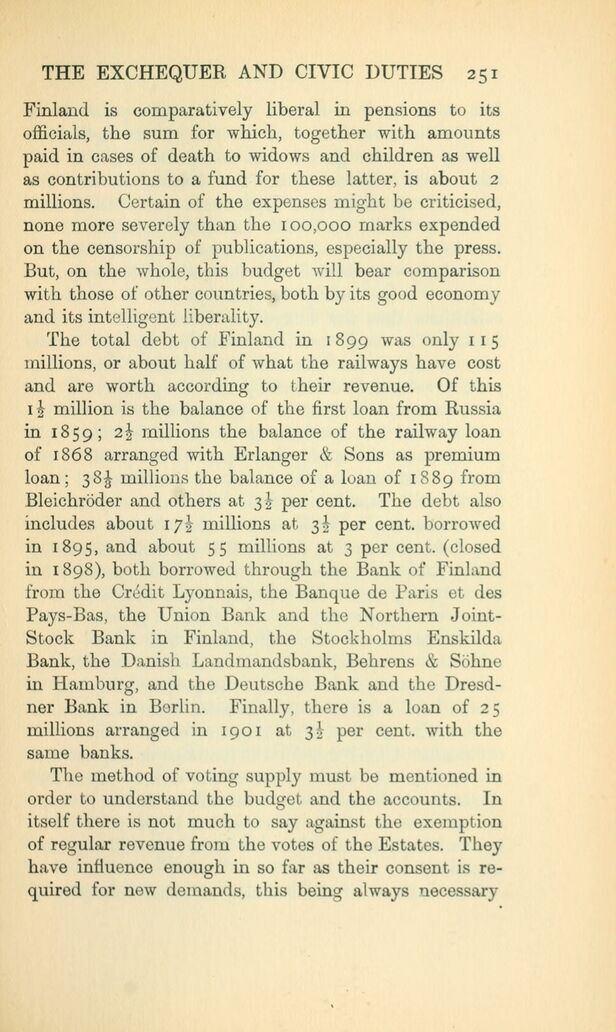
Full resolution (JPEG) - On this page / på denna sida - X. The Exchequer and Civic Duties

<< prev. page << föreg. sida << >> nästa sida >> next page >>
Below is the raw OCR text
from the above scanned image.
Do you see an error? Proofread the page now!
Här nedan syns maskintolkade texten från faksimilbilden ovan.
Ser du något fel? Korrekturläs sidan nu!
This page has been proofread at least once.
(diff)
(history)
Denna sida har korrekturlästs minst en gång.
(skillnad)
(historik)
Finland is comparatively liberal in pensions to its
officials, the sum for which, together with amounts
paid in cases of death to widows and children as well
as contributions to a fund for these latter, is about 2
millions. Certain of the expenses might be criticised,
none more severely than the 100,000 marks expended
on the censorship of publications, especially the press.
But, on the whole, this budget will bear comparison
with those of other countries, both by its good economy
and its intelligent liberality.
The total debt of Finland in 1899 was only 115
millions, or about half of what the railways have cost
and are worth according to their revenue. Of this
1½ million is the balance of the first loan from Russia
in 1859; 2½ millions the balance of the railway loan
of 1868 arranged with Erlanger & Sons as premium
loan; 38⅓ millions the balance of a loan of 1889 from
Bleichroder and others at 3½ per cent. The debt also
includes about 17½ millions at 3½ per cent. borrowed
in 1895, and about 55 millions at 3 per cent. (closed
in 1898), both borrowed through the Bank of Finland
from the Crédit Lyonnais, the Banque de Paris et des
Pays-Bas, the Union Bank and the Northern Joint-Stock
Bank in Finland, the Stockholms Enskilda
Bank, the Danish Landmandsbank, Behrens & Söhne
in Hamburg, and the Deutsche Bank and the
Dresdner Bank in Berlin. Finally, there is a loan of 25
millions arranged in 1901 at 3½ per cent, with the
same banks.
The method of voting supply must be mentioned in
order to understand the budget and the accounts. In
itself there is not much to say against the exemption
of regular revenue from the votes of the Estates. They
have influence enough in so far as their consent is
required for new demands, this being always necessary.
<< prev. page << föreg. sida << >> nästa sida >> next page >>